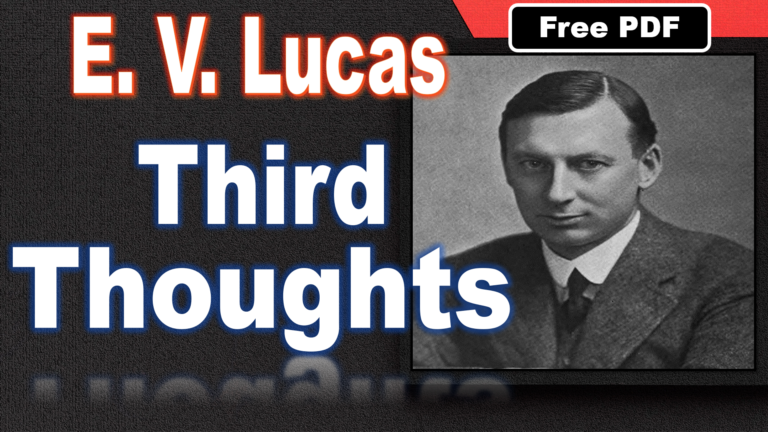Essay Type Questions
Write the critical appreciation of the Essay “Of Studies” by Francis Bacon.
1. Author’s Background and Context:
Francis Bacon, a prominent English philosopher, scientist, and essayist, wrote “Of Studies” in 1625. Bacon’s background as a Renaissance figure deeply influenced his approach to knowledge. His commitment to the empirical method and the advancement of science is evident in his essays. As Lord Chancellor of England, Bacon held a significant position in society, and this might have shaped his perspectives on education and intellectual pursuits.
2. Historical Context and Relevance:
The essay was written during a period of intellectual upheaval and exploration. The Renaissance was marked by a renewed interest in classical knowledge, humanism, and scientific inquiry. Bacon’s essay reflects this intellectual climate, addressing the significance of studies in a changing world. Despite being centuries old, the essay remains relevant due to its timeless insights into the nature and purpose of education.
3. Structure and Organization:
Bacon’s essay follows a structured format, with each paragraph dedicated to a specific aspect of studying. The logical progression of ideas enhances the clarity of his message. The deliberate organization allows readers to navigate through different dimensions of studying, from its purposes to practical recommendations.
4. Clarity of Expression and Style:
Bacon’s writing is characterized by clarity and directness. His sentences are concise, making complex ideas accessible to a broad audience. The use of metaphors, such as comparing studies to pruning plants or tasting books, adds vividness to the prose, making the concepts more relatable. This style aligns with Bacon’s commitment to the advancement of knowledge and the importance of clear communication.
5. Themes Explored:
a. Three Purposes of Studies:
Bacon’s exploration of the threefold purpose of studies – delight, ornament, and ability – demonstrates his nuanced understanding of the multifaceted nature of education.
b. Balanced Approach:
A central theme is the emphasis on balance in studying. Bacon warns against extremes, such as excessive devotion to studies or using them solely for show. This theme underscores the practical wisdom Bacon advocates for.
c. Individual Tailoring of Studies:
Bacon’s recommendation to tailor studies based on individual needs and deficiencies is a significant theme. This personalized approach aligns with the idea that education should not be a one-size-fits-all model.
6. Practical Wisdom and Observational Learning:
Bacon’s essay goes beyond traditional academic wisdom. He advocates for practical wisdom gained through observation and experience. The distinction between crafty, simple, and wise individuals emphasizes the importance of applying knowledge in real-life situations.
7. Metaphorical Use of Language:
Bacon employs metaphors effectively to convey complex ideas in a relatable manner. The metaphor of pruning plants to describe the refinement of natural abilities through studies or the analogy of different intellectual activities to physical exercises adds depth and visual appeal to his arguments.
8. Relevance to Modern Education:
Despite being written centuries ago, Bacon’s insights are applicable to contemporary education. His call for a balanced approach, the importance of critical thinking, and the need to tailor education to individual strengths and weaknesses remain pertinent in today’s educational discourse.
9. Impact on Educational Philosophy:
Bacon’s essay has left an enduring impact on educational philosophy. His emphasis on the practical application of knowledge, the integration of theory and experience, and the individualized approach to learning has influenced subsequent generations of educators and scholars.
10. Criticisms and Debates:
While praised for its timeless wisdom, “Of Studies” has faced criticisms. Some argue that Bacon’s emphasis on utility might undervalue the intrinsic value of knowledge. Additionally, the essay’s gender-neutral language reflects the social norms of Bacon’s time and has been criticized for not addressing diverse perspectives.
11. Conclusion and Enduring Significance:
“Of Studies” by Francis Bacon continues to be appreciated for its enduring significance in the realm of education. The essay’s emphasis on balance, practical wisdom, and individualized learning resonates with contemporary discussions on educational philosophy and pedagogy. Its historical context, coupled with its timeless insights, renders it a valuable piece of literature that enriches our understanding of the purpose and nature of education.
Write long note on Francis Bacon as Essayist.
Francis Bacon as Essayist: Master of Wisdom and Wit
Francis Bacon, the renowned polymath of the 17th century, left an indelible mark not just on philosophy and science but also on the realm of literature. His essays, particularly the collection titled “Essays” published in stages between 1597 and 1625, established him as a pioneer and master of the English essay form. This note explores the key characteristics of Bacon’s essays, highlighting his unique style, insightful content, and enduring influence on the genre.
1. Pioneering the Essay Form:
Breaking the Mold: Prior to Bacon, essays were primarily focused on theological or scholarly topics. Bacon, however, ventured into personal reflections, observations on human nature, and practical advice, paving the way for a more personal and wider scope for the essay.
Aphoristic Style: He adopted a concise and pithy style, characterized by short, impactful sentences and memorable phrases. This “aphoristic” approach allowed him to pack a wealth of wisdom into brief passages, making his essays easily digestible and quotable.
Informal Tone: Unlike the formal and pedantic writing of the time, Bacon’s essays employed a conversational and engaging tone, often addressing the reader directly and drawing them into his thought process.
2. Content and Themes:
Worldly Wisdom: The essays delve into a vast array of topics, from politics and morality to education and human relationships. Bacon’s focus is on practical wisdom, offering insights and advice that can be applied to everyday life.
Empiricism and Observation: Drawing from his scientific background, Bacon emphasized the importance of observation and experience over abstract theorizing. This empirical approach lends a sense of groundedness and practicality to his writings.
Balance and Moderation: He advocated for a balanced approach to life, urging readers to avoid extremes and embrace moderation in all aspects, including studies, ambition, and personal conduct.
3. Style and Language:
Metaphors and Similes: Bacon masterfully employs vivid metaphors and similes to illustrate his ideas, making them more relatable and memorable. Comparing natural abilities to plants needing pruning, for example, effectively highlights the need for refinement through learning.
Parallelism and Repetition: He uses parallelism and repetition to emphasize key points and create a rhythmic flow, enhancing the clarity and memorability of his prose.
Precise and Evocative Vocabulary: While maintaining clarity, Bacon selects words that convey specific nuances and leave a lasting impression. His language is rich and varied, yet avoids unnecessary complexity.
4. Legacy and Influence:
Father of the English Essay: Bacon’s groundbreaking contributions are widely recognized, earning him the title of “Father of the English Essay.” His work paved the way for a new generation of essayists like Montaigne and Alexander Pope, who adopted and adapted his style and themes.
Timeless Relevance: Despite being written centuries ago, Bacon’s essays retain their relevance due to their focus on universal human experiences and practical wisdom. His insights on learning, personal conduct, and navigating the complexities of life resonate with readers across time and cultures.
5. Conclusion:
Francis Bacon’s essays stand as a testament to his intellectual prowess, wit, and ability to translate complex ideas into clear and engaging prose. He revolutionized the essay form, leaving a lasting legacy that continues to inspire and influence writers and readers alike. His wisdom and insights remain valuable companions for anyone seeking to navigate the complexities of life and make sense of the world around them.










